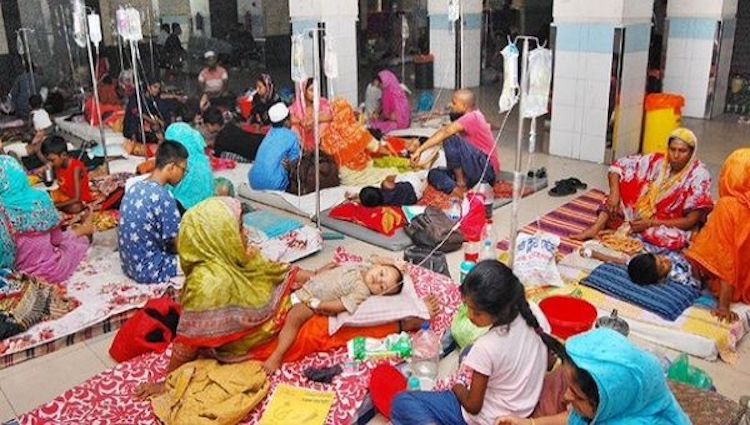By Sohail Choudhury*
DHAKA. 12 August 2023 (IDN) — Bangladesh is currently facing a significant challenge as it grapples with a dengue epidemic. Since January, hospitals in the country have reported a staggering 80,074 cases of dengue, with 2,046 new cases added in the latest daily count. The death toll has risen by nine in a 24-hour period, reaching a total of 373 as of Friday morning (11 August), according to the Directorate General of Health Services.
The outbreak has been particularly severe this year compared to previous years. In 2022, hospitals recorded 62,382 cases and a death toll of 281, which was the highest since the beginning of dengue hospitalizations in the 1960s. The situation was even worse in 2019, with over 100,000 dengue hospitalizations and an official death toll of 179.
A government-funded survey conducted before the monsoon season in Dhaka city revealed a troubling surge in Aedes aegypti mosquitoes, which are known carriers of the dengue virus. This surge has contributed to the widespread transmission of the disease, marking the worst spread in the past five years.
Most of the deaths resulting from dengue have been attributed to hemorrhagic fever and shock syndrome, conditions associated with certain new variants of the virus previously unseen in Bangladesh.
The World Health Organization (WHO) reported that, from January 1 to August 7, 2023, the Ministry of Health and Family Welfare of Bangladesh confirmed a total of 69,483 laboratory-confirmed dengue cases and 327 related deaths, with a case fatality rate of 0.47 per cent. A significant majority of these cases (63 per cent) and deaths (62 per cent) occurred in the month of July 2023. This surge in dengue cases is unusual in terms of its seasonality and the rapid increase compared to previous years.
Factors contributing to the higher incidence of dengue include an unusual amount of rainfall, high temperatures, and elevated humidity levels, leading to an increased mosquito population throughout the country.
The outbreak has affected all 64 districts in Bangladesh, with the Dhaka division experiencing a particularly high number of cases, especially in Dhaka city corporation. Other affected divisions include Chattogram, Dhaka division excluding Dhaka city, and Barisal. The Sylhet division reported the lowest number of cases with no deaths.
The high fatality rate of Dengue
The report from WHO indicates that the case fatality rate (CFR) for dengue in 2023 is 0.47 per cent, higher compared to previous years. There are variations in CFR based on gender and age groups, with females having a higher CFR than males, and the older age group experiencing a higher CFR than the younger age group.
Regarding the serotypes of the dengue virus, DENV2, which was previously predominant in Bangladesh until 2018, has reemerged as the primary circulating serotype in this outbreak, potentially leading to more severe cases.
Efforts to combat the epidemic focus on vector control, given that there is no specific treatment for dengue. Integrated Vector Management (IVM) strategies are promoted by WHO to control the Aedes species mosquitoes, responsible for dengue transmission. These strategies include environmental management, source reduction, and the use of insecticide-treated nets.
Personal protective measures, such as applying repellents and wearing protective clothing, are recommended, particularly during dawn and dusk when the mosquitoes are active.
Due to the ongoing high number of cases and deaths, the peak not yet being reached, and the increasing geographical spread of cases, Bangladesh faces a ‘High’ dengue risk at the national level. Additionally, the emergence of DENV2 as the predominant serotype poses a significant concern.
Given the frequent population movement across the land border with India, as well as the country’s receipt of international tourists, the risk of international disease spread is a concern. This epidemic highlights the urgent need for comprehensive measures to control the dengue outbreak, particularly through effective vector control strategies, early detection, and appropriate healthcare management.
Sohail Choudhury is a journalist and Executive Editor of Weekly Blitz. [IDN-InDepthNews]
Photo: People infected with Dengue in Bangladesh. 10 July 2023. | Credit: Twitter/@NewAgeBDcom. Source: Telesur
IDN is the flagship agency of the Non-profit International Press Syndicate.

